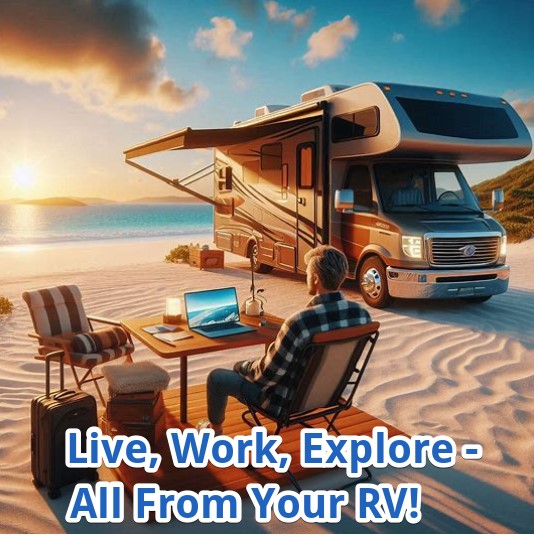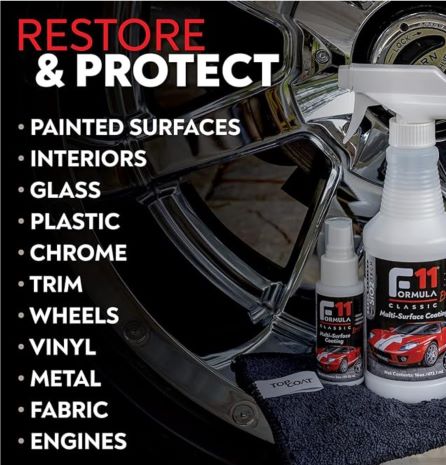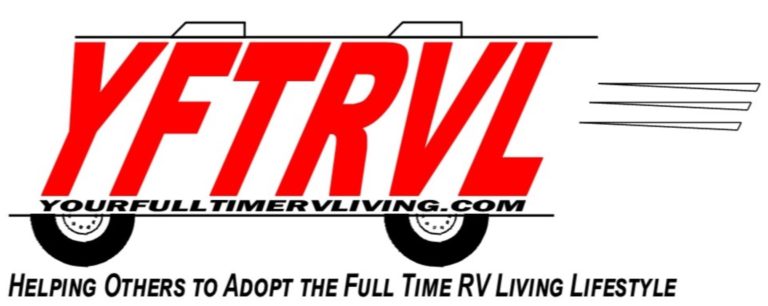Living Full Time in an RV – Part Two
In part one of this article, I discussed the idea of renting an RV before you buy one that you will full time in, considering the limited space and how it will affect your current family relationships, choosing your domicile state, remembering the pets and their needs, establishing a budget to see where you stand, a possible need to supplement your income to afford the lifestyle, and choosing the best RV for you while not forgetting to consider every aspect of it.
In this writing, we will go a little deeper and continue the thought processes that may help you as you consider your plans to embrace full time RV living.
Where Do You Want to Go?
Will your full-time RV living involve lots of traveling, or will you move to an area and stay for one to three months, or maybe even six months? Perhaps you are just selling everything, downsizing, and moving into a “tiny home,” as they are being called these days?
How you plan your full time RV lifestyle will determine a lot of things when it comes to the purchase of your tiny home on wheels! If you have decided that you will travel a lot and reside in both warm and cold climates, that will affect many things when choosing the RV you will buy!
RV’s don’t do well in cold weather unless they are designed for that purpose. Some manufacturers refer to that as four-season living. These types of RV’s will have more wall, roof, and underbelly insulation than the typical RV.
They may also install tank heaters for the fresh water and waste tanks. The outside services where water and sewer services attach to the RV will also be more concealed and have a heater vent so that when the furnace is running, that area is kept from freezing when the temperatures get below thirty-two degrees. Other systems may be upgraded as well.
You can buy a heated water hose that plugs into a 120-volt receptacle. That way, as long as the service bay in the RV is heated and insulated, the water hose is heated, and the RV park service is protected from the cold, you can comfortably live in your RV when the temperatures drop below freezing!
Pam and I bought our first full time living RV, thinking we would stay stationary for a bit and work camp, but then we would travel to both warm and cold climates. Now, we are not talking about living in the north with snow, but places where it can drop below freezing at night in the month of January.
Our first full time RV had all those extras I mentioned earlier. The coldest we ever experienced was in the panhandle of Florida. It was January, and the prediction was for snow. That is a rare event, but nonetheless, it happened. We were staying near the beach, so we did not see snow, but that night, it dropped to sixteen degrees, and we had an ice storm that coated the RV so badly it took a hair dryer to get out the door.
The high that day was twenty-nine degrees! It did not last long, and we were back in the sixties in a few days, but these things can happen. We were at the Grand Canyon in November and got four inches of snow. It, too, disappeared quickly, but we had to wait for things to warm up a bit to get our slides in before we could continue our travels. They had iced over and would not retract!
If you only plan to stay and travel in warm climates, you can save yourself on some cold-weather extras you will not need. But, if you are unsure, it would be best to buy something that will handle the cold weather, just in case! We were glad we did! While our fellow RVers were rupturing water connections, we were fine!
Motorized or Towable?
One of the biggest decisions that people considering the full time RV lifestyle have to face is to get an RV with an engine or one that can be towed behind a vehicle.
Motorized RVs that would be suitable for full timing could be a Class A gas, a Class A diesel, or a Class C gas or diesel RV.
Towable RVs could either be a 5th wheel RV or a Travel Trailer. We know fellow full-timers who live in each of the types I just mentioned. Some of these people are just couples, some travel with kids, and others are singles who have adopted the lifestyle.
Which type of RV will be best for you? This decision will be hard to make when starting to plan an RV purchase. That is why renting an RV will help! From our personal experience and that of others, a motorized RV will work better if you plan to move around a lot. A towable RV will be cheaper and works better for folks who intend to stay in one place for extended periods of time.
Consider that as your main criterion when starting to look at RVs. That does not mean a towable RV won’t work when you are moving around from week to week. It just takes more effort to get it parked and set up compared to a motorized RV. Again, this is just our opinion and one based on our experiences of living and traveling in both!
Some other considerations
How much weight do you plan on carrying, will you be dry camping a fair bit, and what will be your transportation other than the RV?
When looking at RV’s you will want to be aware of what the manufacturers call the cargo carrying capacity of the RV. In RVs after the year 2008, they have a yellow label posted inside the RV that shows how much weight you can put in it.
Our current RV home lists that we can carry 2,800 pounds of stuff. That includes people, a full tank of water, and our personal belongings. We also pull a trailer, so we need to add the 475 pounds of the trailer’s tongue weight on the rear hitch.
That 2,800 pounds sounds like a lot until you start loading the RV for full-time living. Concerned about that, we had it weighed at a rally in Elkhart, IN. The RV was weighed at each tire, including the trailer’s tires, and with the trailer unhooked to determine the tongue weight. We were loaded as we would travel with some water and a full fuel tank, and Pam and I were seated in the driver and passenger seats.
We discovered we were okay on the front axle with a thousand pounds clear of the maximum axle load rating. However, in the rear axle, we were pretty near maximum on the curbside and a little over on the streetside of the RV.
Now, because we don’t travel at speeds of more than 65 mph, and usually less than that, we were advised that we are okay as loaded but don’t add any more weight! We had this service done by the RV Safety and Education Foundation. So, my advice is once you get your RV loaded for full-time living, get it weighed for safety’s sake!
If you are dry camping a fair bit and do not have access to water, sewer, and electricity, then you need to have adequate sources on board to meet those needs: a large freshwater tank, perhaps 100 gallons or more, adequate waste tanks, solar panels and/or an inverter, and a generator.
It is nice to have all the comforts of home while traveling and to be able to park in approved locations other than RV parks and campgrounds. You can go to many places that accept RV’s and you can stay for free! And you can only do that comfortably if your RV is set up with that use in mind.
Other than your RV, what will be your vehicle to go shopping with, sightseeing, etc.? If you are in a towable RV, the vehicle used to pull it will probably be utilized for that purpose. If you are in a motorized RV, you must consider towing a vehicle behind. Can the towed vehicle be pulled with all four wheels on the road, or does it need a tow dolly? Maybe it can’t be towed at all, and you would prefer to keep it protected in a trailer?
When Pam and I had the 5th wheel RV, we had the big Freightliner truck or a small Honda motorcycle to get around with. We loved the Honda because it was easy to carry on a custom-made platform on the back of the 5th wheel. It was also easier to get around with than the Freightliner medium-duty truck. But we had either to choose from.
Now that we have a motorized RV and no car, people ask us how do we get around. They don’t realize the Honda is in the trailer, but we tell them we have legs to walk, we each have a bicycle, and we have the Honda. Sometimes, we take the RV out for those big shopping trips, or we shop before we reach our destination.
If you choose a towable RV, please buy more tow vehicles than you need! Don’t trust the dealer on this. Do your research and be sure you know what the vehicle can tow and how much load the vehicle can carry.
For most people, the tow vehicle will be a truck. Think about the value of a long bed over a short box truck and having four doors instead of an extended cab. Reflect on how you are going to use that vehicle!
RV Maintenance!
Most people think that RV stands for Recreational Vehicle. What it actually stands for is Repair Vehicle Regularly. Perhaps they should be called RVRs! There is just a bit of humor there as I try to make a point!
If you own an RV for any length of time and put a lot of miles on it, you will discover things will break or require maintenance. When driving an RV down the road, to some of the interior components, it appears to be like an earthquake! The bumps, ruts, potholes, and washboard roads send vibrations throughout the RV.
Things will loosen, break, start to leak, not work, etc. How will you get things fixed? Should you consider an extended warranty for your RV? If you are not comfortable with an RV’s complex systems and nuances, that may be the best way to go! However, when you are sitting in your RV, and the lights go out, will an RV tech be immediately able to take care of you?
We talked about this maintenance aspect when a full time RV living budget was discussed in the last article. Be prepared for unexpected costs that may show up during travel. Tires blow, road alligators (truck tire shreds) can damage your RV, AC units fail, etc. You will have less of this with a newer unit, but if you buy used, be sure you cover the bases!
Healthcare!
If you are at the point in your life where you require frequent visits to the doctor and prescriptions need to be filled, how will you accomplish this while in travel mode? Can you visit other doctors in different locations?
Can you get prescriptions through a national drugstore chain? Perhaps you can plan annual visits back to your doctor to take care of these things?
Staying Connected!
Having access to the internet while traveling full time in an RV can be a challenge! For those of us on the road full time, we need internet access all the time! Especially for Pam and I, who run a business out of our RV home!
Cell phone access has not been a problem for years! We can always make and receive phone calls wherever we travel via Verizon Wireless.
There are many reasons to stay connected to the internet: email, financial needs, travel research, Skype, YouTube, and social media. However, it all consumes gigabytes of data, and that costs! When you have a fixed residence, unlimited data plans are typical! Not so much when it comes to living in an RV unless you spend the dollars for the technology.
You can’t just rely on RV Park WiFi, either. For the majority of RV parks, the WiFi is free for a reason: it is worthless! They don’t offer the bandwidth to accommodate everyone who wants to Skype, watch movies, and watch YouTube videos. We have noticed that it is getting better as we travel, but don’t count on it!
You can purchase antenna boosters and routers that will help to receive a stronger signal. The money you may spend on this technology may be the first thing to try, and if you find that is not meeting your needs, search for alternative ways to get online.
Pam and I have been with Verizon since before it was even called Verizon! We each have a smartphone and one unit called a MiFi. It broadcasts a signal that our laptops and tablets can access at the same time. We could just use the smartphone to do that, but this just works better for us. With 24 Gig of data per month, we are just under $200 for all our devices. We use up all our data every month! Sometimes, when in a park with decent WiFi, I can stretch that further, but that does not happen often!
So, the bottom line is you may have to spend money on some technologies to suit your full time RVing mobile data needs.
Our newest way to connect to the internet and WiFi TV is our Starlink.
Laundry!
Here is one aspect of the lifestyle that people don’t consider to be a big deal! Doing laundry is never fun, and it can be even worse when you have to use the facilities at an RV park. Most of the laundry rooms are okay, but some we have used were scary! I did not want to wash my clothes there!
Pam and I were staying in a park in Albuquerque, NM, where a lot of people did road work, namely paving operations. They would bring their dirty laundry in a garbage can and monopolize the entire facility. Once done, an examination of the washer revealed that the machine was loaded with dirt and sand from their clothes. I am not sure what else was in there, but needless to say, we didn’t use them again.
Shortly after, since our RV had a place for an apartment-size washer and dryer, we purchased those and installed them ourselves! Oh, happy day! From then on, laundry was a breeze! That is until we sold it and got another RV that did not have them! So now we choose RV parks that are a little higher class, and if in doubt, we run bleach through before washing our clothes. Our next RV will again have a washer and dryer!
You won’t be sorry if you can get an RV with a combo unit or one with a separate washer and dryer! You will always know where your clothes have been!
For Next Time!
In the next and last installment of this series, we’ll address some final thoughts that will get you that much closer to hitting the road!








Recent Comments